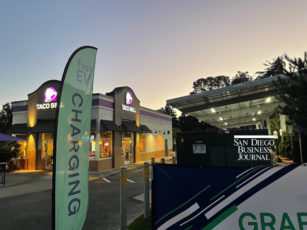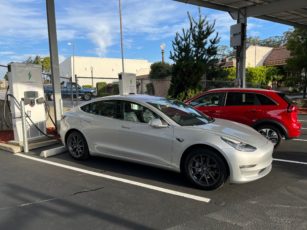Inflation Reduction Act Officially Passes the Senate, Revamping Electric Vehicle Pricing
Over the weekend Senate Democrats officially passed the Inflation Reduction Act in what amounts to President Biden’s biggest legislative win so far. The bill includes a host of broad-spectrum economic policy changes and completely reworks the subsidies for electric vehicle purchases. The law still has to get through the House, but this should be a much smaller hurdle.
dot.LA covered the bill in depth as it neared the goal line at the end of July, and the final iteration doesn’t change much. To recap:
1. The rebate total stays $7,500 but is broken into two $3,750 chunks tied to how much of the car and its battery are made in the US.
2. The manufacturer caps are eliminated, meaning even EV companies that have sold more than 20,000 vehicles are once again eligible.
3. Rebates will now only apply to cars priced below $55,000 and trucks/SUVs below $80,000
With the new system placing a renewed emphasis on American manufacturing and assembly, the calculus of which vehicles cost how much is still being worked out. The most comprehensive (but unofficial!) list I’ve seen has come from Reddit user u/Mad691.
In addition to the EV rebate program, the bill also includes a number of economic incentives aimed at curbing emissions and accelerating the country’s transition to electric vehicles.
There’s $20 billion earmarked for the construction of new clean vehicle manufacturing facilities and $3 billion will go help electrify the USPS delivery fleet. Another $3 billion will go to electrifying the nation’s ports. Then there’s $1 billion for zero-emission trucks and buses.
Now that the bill is about to be codified into law, VC investment in the sector might heat up in response to the new money flowing in.
“I do anticipate more climate funds standing up to invest in EV infrastructure,” says Taj Ahmad Eldridge, a partner at Include Ventures and the director at CREST an ARES Foundation initiative with JFF/WRI that aims to provide training for people in the new green economy. “However, we do see funds being a little more thoughtful on diligence and taking their time to fund the right investment.”
The sentiment seems to be shared across Southern California. ChargeNet CEO and Co-Founder Tosh Dutt says the Inflation Reduction Act “super charges” the company’s effort to build infrastructure across the country.
“This investment accelerates the transition to renewable energy and gives companies like ChargeNet Stations the confidence to expand more rapidly, especially in underserved communities,” says Dutt.
For Rivian, the bill’s passage has left would-be customers in a sort of limbo. Because many of their models will exceed the $80,000 cap for trucks and SUVs after options, customers who’ve preordered are scrambling to sign buyers’ agreements to take advantage of the current EV rebate scheme which doesn’t include price caps. As I noted in the previous article, if you buy an EV before the bill is signed, you’re eligible for the current rebate system even if the vehicle isn’t delivered until 2023. Any existing contracts under the current system will remain valid.
With the legislation seemingly on the fast track to become law, it’s unclear whether or not Rivian will expedite the purchasing process to allow customers to sign the buyers’ agreement before the new rebate program becomes the law of the land. Tick tock!
Photo Courtesy of Mike Stoll via Unsplash


